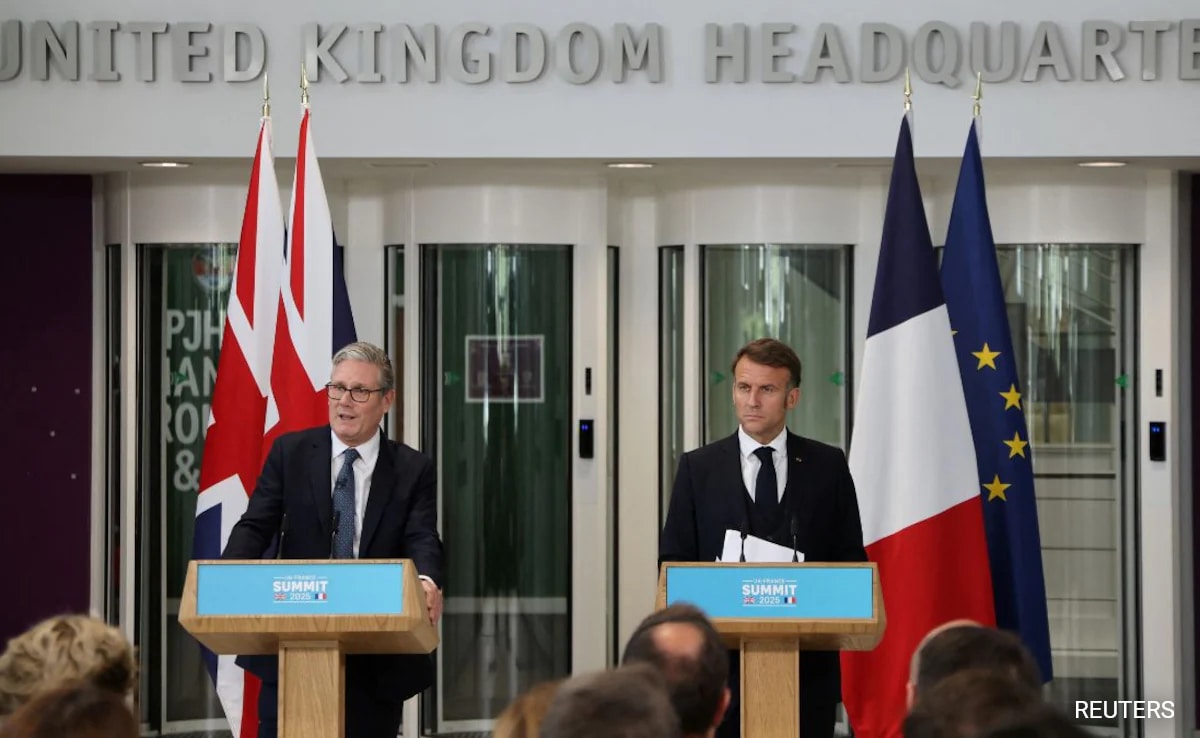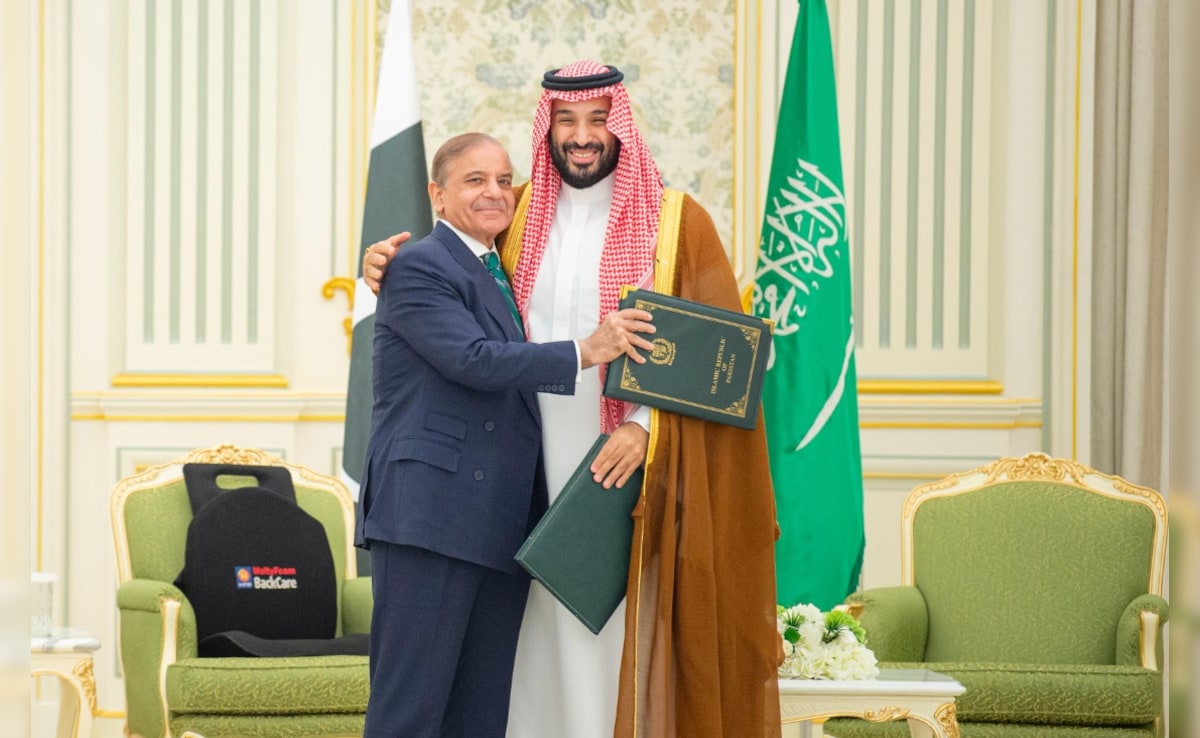Ukrainian President Volodymyr Zelensky dispatched a delegation that included Defense Minister Oleksii Reznikov and other key officials, including a close adviser to the president and the deputy foreign minister. But the sides seemed far apart: the Ukrainians would demand an immediate cease fire and the withdrawal of Russian troops, according to Zelenky’s office. The Kremlin had said it was willing to talk — on the condition that Ukraine “demilitarize and denazify,” making it clear it expected Ukraine’s capitulation.
Three residential areas of Kharkiv, Ukraine’s second-largest city, came under significant artillery attack Monday afternoon, sending more than 30 residents and military personnel to the hospital and killing at least one civilian, according to city officials. According to the Pentagon, Russia is facing more resistance in the capital, Kyiv, than it was expecting.
Belarus is preparing to send soldiers into Ukraine in support of the Russian invasion as soon as Monday, a U.S. official said, in a move that increases tensions. “It’s very clear Minsk is now an extension of the Kremlin,” said the U.S. administration official, who spoke on the condition of anonymity to discuss a sensitive security development. The State Department suspended operations at the U.S. Embassy in Belarus.
Here’s what to know
News•
News•
News•
In photos: More than half a million people flee Ukraine
Return to menuBy train, bus, car and on foot, more than 500,000 people have fled Ukraine, the United Nations refugee agency said Monday. Since Russia’s attack began last week, shattered and exhausted families are seeking safety in neighboring countries such as Poland and Hungary.
Some people boarded trains and buses without even having a clear destination in mind — they just wanted out of key cities and apartment buildings being bombarded by Russian shelling.
They carried their children, suitcases and their beloved pets, while others said emotional goodbyes to the husbands, fathers, partners and other loved ones they were leaving behind, who said they were staying in Ukraine to fight for their country, for freedom and for Europe.
Photos captured by Washington Post photographers and others showed crowded platforms and chaos at key transport hubs. Some people slept on floors, while others soothed screaming children.
As Ukrainian officials ask foreigners to join their fight, some governments appear to be on board
Return to menuUkrainian officials have asked European citizens of all stripes to join their fight against Russia — and some nations are responding approvingly to the call.
Ukrainian President Volodymyr Zelensky and his officials over the weekend announced a new volunteer force for foreign fighters, called the International Legion of Territorial Defense of Ukraine, and urged volunteers to join through their local Ukrainian embassies. Zelensky said “anyone who wants to join the defense of Ukraine, Europe and the world can come and fight side by side with the Ukrainians against the Russian war criminals.”
Foreigners willing to defend Ukraine and world order as part of the International Legion of Territorial Defense of Ukraine, I invite you to contact foreign diplomatic missions of Ukraine in your respective countries. Together we defeated Hitler, and we will defeat Putin, too.
— Dmytro Kuleba (@DmytroKuleba) February 27, 2022In statements and votes, officials in various European nations have allowed or appeared to encourage their nationals to fight on behalf of Ukraine — a move Ed Arnold, a research fellow for European security at the London-based Royal United Services Institute think tank, characterized as a “catchy” but impractical political line.
On Monday, lawmakers in Latvia voted unanimously to allow Latvian citizens to fight in Ukraine, according to Reuters. And in Denmark, Prime Minister Mette Frederiksen said Sunday that fighting in Ukraine is “a choice that anyone can make.”
“This goes for all Ukrainians who live here, but also for others who think they can contribute directly to the conflict,” Frederiksen said during a news conference. “There is nothing at first sight that would legally prevent someone from going to Ukraine to participate in the conflict, on the Ukrainian side.”
Meanwhile, British Foreign Secretary Liz Truss told the BBC on Sunday that she supported people in Britain who might want to travel to Ukraine to join the fight, adding that Ukrainians were fighting for freedom, “not just for Ukraine but for the whole of Europe.”
But on Monday, U.K. Defense Secretary Ben Wallace was asked about her comments on Sky News and said there are “better ways” for civilians to “contribute to the security of Ukraine.”
While he agreed with Truss that Ukraine is defending democracy, Wallace said, traveling to Ukraine can be dangerous for people with no military background.
“If you’re keen to help and you’re a United Kingdom citizen, come and join our armed forces,” he said.
Jennifer Hassan contributed to this report.
Former college basketball standout blames his Ukrainian pro team for stranding him
Return to menuMaurice “Mo” Creek, a former college standout at Indiana and George Washington, said Sunday he was “stuck” in Ukraine, where he has been playing professionally since January.
“Every day I’m on the phone with my agent, trying to get out of here as soon as possible,” Creek told Fox News. “Hopefully, I can get to one of these borders and get out of here.”
In an interview Sunday with basketballnews.com, Creek told former NBA player Etan Thomas that he was speaking from a bomb shelter in the basement of his apartment complex, where some neighbors had turned wooden pallets into makeshift beds.
“I’ve been going back and forth between my apartment and the bomb shelter that they put me in to be safe, because the war is going on around our area,” the 31-year-old said. “So we just have to be as safe as possible, keep our heads held low.”
Israel to support U.N. General Assembly resolution condemning Russia
Return to menuTEL AVIV — Israel announced Monday that it will support a U.N. General Assembly resolution condemning Russia for invading Ukraine after having refused an earlier American request to vote against Russia in a similar U.N. forum.
“Israel has been and will be on the right side of history,” said Israeli Foreign Minister Yair Lapid in a briefing with journalists. “Our organizing principle is clear: We are taking care of Israelis, we are taking care of Jews, and our hearts are with the people of Ukraine.”
Israel last week rejected a U.S. request to co-sponsor the U.N. Security Council resolution condemning Russia. The General Assembly vote is expected Monday or Tuesday, Lapid said.
Since the Russian invasion last week, Israel has increasingly expressed support for Ukraine but has stopped short of publicly criticizing Russia. Israeli Prime Minister Naftali Bennett has said that Israel is maintaining a “measured and responsible policy.”
Russia has a large military presence in Syria on Israel’s northern border and is a strategic ally with Iran, Israel’s primary rival in the region. Lapid said that the United States was and is Israel’s most important ally and that the United States “understood” Israel’s sensitive security position: the Russian presence in Syria and the sizable Jewish and Israeli community remaining in Ukraine.
He added that Israel will continue to provide humanitarian assistance to Ukraine. Israel will airlift 100 tons of water purification kits, medical equipment, drugs, tents, blankets, sleeping bags and other equipment Monday evening to Poland, where hundreds of thousands of Ukrainians have fled. It is the first of three planes scheduled to leave for Ukraine on Monday and Tuesday.
In recent days, thousands of Israelis have taken to the street to condemn the Russian invasion and call on Israel to do more to help Ukraine. On Monday morning, a small demonstration outside the Knesset called on Bennett to sell Iron Dome antimissile defense systems to Ukraine. The sale was blocked by Israel, expressing concerns that it would damage its relations with Russia, according to a recent report on the Israeli news site Ynet.
State Department suspends operations at U.S. Embassy in Belarus
Return to menuThe U.S. State Department has suspended operations at its embassy in Minsk, the capital of Belarus, and has approved the “voluntary departure” of non-emergency employees and their families from its embassy in Moscow, Secretary of State Antony Blinken said in a statement Monday.
“We took these steps due to security and safety issues stemming from the unprovoked and unjustified attack by Russian military forces in Ukraine,” the statement said. It said the government’s main priority is to secure the safety of U.S. citizens — including government workers and their dependents serving globally.
A significant factor in the State Department’s decision to suspend operations was preparations by Belarus to send troops into Ukraine to support the Russian invasion, a U.S. official said.
Blinken said the State Department often “adjusts its posture at embassies and consulates throughout the world in line with its mission, the local security environment, and the health situation.”
The announcement comes a day after Blinken described Russia’s attack as “a war of choice” and called on countries to unite in issuing sweeping sanctions.
The war in Ukraine isn’t working out the way Russia intended
Return to menuThe war in Ukraine isn’t going Russia’s way.
Videos posted on social media show whole columns of tanks and armored vehicles have been wiped out. Others have been stopped in their tracks by ordinary Ukrainians standing on the street to block their advance.
Lightly armed units propelled deep into the country without support have been surrounded and their soldiers captured or killed. Warplanes have been shot out of the skies, and helicopters have been downed, according to Ukrainian and U.S. military officials.
Logistics supply chains have failed, leaving troops stranded on roadsides to be captured because their vehicles ran out of fuel.
Most critically, Russia has proved unable to secure air superiority over the tiny Ukrainian air force — despite having the second-largest air force in the world, Pentagon officials say. Its troops have yet to take control of any significant city or meaningful chunk of territory, a senior U.S. defense official said Sunday.
U.S., European allies freeze ‘Putin’s war chest’ as Russia careens toward economic crisis
Return to menuThe U.S. government and its European allies put into effect on Monday sweeping new penalties aimed at crippling Russia’s economy, as the West escalates its financial war against the Kremlin over its invasion of Ukraine.
Russia’s economy was already showing signs of severe distress before the new measures were implemented, with crowds of Russians rushing to withdraw cash from ATMs and the value of the nation’s currency plunging dramatically.
Overnight, European leaders imposed new measures that effectively cut Russia off from its financial reserves. The U.S. Treasury Department followed suit with similar steps Monday morning. Under the new regime, all people in the United States and European Union are banned from trading with Russia’s central bank. The sanctions also apply to Russia’s Finance Ministry and its sovereign wealth fund, to prevent the Kremlin from using loopholes to continue to access the reserves.
Kremlin accuses Europe of ‘hostile’ actions as Russian economy reels
Return to menuMOSCOW — The Kremlin accused Europe on Monday of taking “hostile measures” against Russia, a reference to sweeping sanctions and moves to send military equipment to Ukraine, as Russia’s military confirmed that the nation’s nuclear forces have been placed on high alert.
Kremlin spokesman Dmitry Peskov linked the decision to place forces on high alert to British Foreign Minister Liz Truss’s comments earlier supporting the right of citizens to go to Ukraine to fight in what she described a battle “for democracy.”
Truss said Ukrainians were fighting for freedom “not just for Ukraine but for the whole of Europe.”
“Statements were made by various representatives at various levels on possible altercations or even collisions and clashes between NATO and Russia,” Peskov told reporters. “We believe that such statements are absolutely unacceptable,” he said, referencing Truss.
He declined to comment on the risk of a direct confrontation between NATO and Russia.
Peskov said the European Union, “if we call a spade a spade, has taken hostile measures against us.” He called the personal sanctions by Washington and the European Union against Putin absurd and shortsighted.
He said Russia’s response would be “rational,” but he did not indicate whether individual leaders would be targeted.
Peskov said Russia’s response would meet its national interests. He added that Putin holds no major assets and is “quite indifferent” to the sanctions against him.
He also denied that Russia’s attacks were striking Ukrainian civilian neighborhoods and claimed that civilian casualties were caused by far-right Ukrainian nationalist groups using civilians as human shields, a claim for which he produced no evidence.
Asked about Ukrainians who blame Russia for attacks on civilians, Peskov said they were victims of Kyiv’s propaganda. “From my experience, I can say that, indeed, even those who are now hiding in the basements and so on very often become victims of military nationalistic formations, which really use them as a shield. These people do not know the actual situation and are becoming victims of Ukrainian spin doctors,” Peskov said.
Japan imposes sanctions on Belarus, central bank of Russia
Return to menuJapan has issued another round of sanctions targeting individuals and organizations from Belarus, which is poised to send troops into Ukraine, and the central bank of Russia by limiting transactions, Japanese Prime Minister Fumio Kishida announced Monday night. Among the Belarusian individuals targeted by the new sanctions is President Alexander Lukashenko.
Japan also said Monday it would allow Ukrainian refugees and Russians opposing the invasion into the country and renew visas of Ukrainians in Japan who need to stay. It is joining the West in cutting off Russian banks from the SWIFT international payment system, which could hobble Russia’s ability to do business outside of its borders. Japan will also impose restrictions on exports to Belarus.
Tokyo has announced new sanctions on a near daily basis since last Wednesday, joining its Western allies in squeezing Russia economically for its actions in Ukraine. Previously, Kishida announced Japan would freeze the assets of Russian government officials, including Putin. Kishida also announced Japan will provide $100 million in humanitarian aid to Ukraine. Japan has already pledge
.png)











 English (United States) ·
English (United States) ·  Turkish (Turkey) ·
Turkish (Turkey) ·